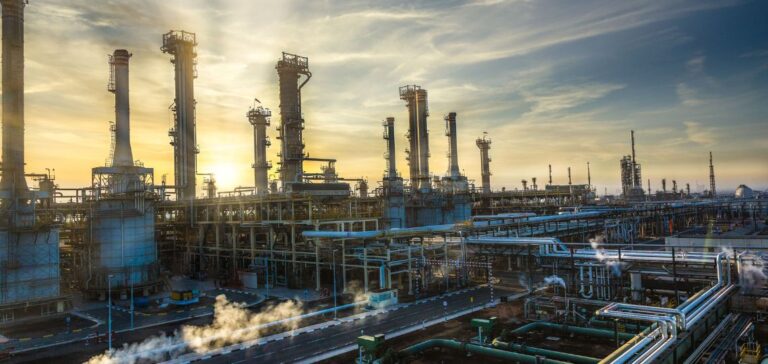For the past eight months, Abu Dhabi National Oil Company (ADNOC) has been recording a steady decline in exports of its Upper Zakum medium-sulphur crude, hovering around 700,000 barrels per day (b/d) and falling to 589,000 b/d in June, according to data from S&P Global Commodities at Sea.
This decline coincides with the transformation of the Ruwais refinery, which is now able to process heavier crudes.
The change in strategy frees up volumes of Murban, a lighter crude, for export, but reduces the volumes available from Upper Zakum for the world market.
Upper Zakum, with an API of 33.9, is a medium-sulphur crude, while Murban, with an API of 40.5, is a light crude.
This difference in quality influences ADNOC’s export strategy.
The decline in Upper Zakum exports poses a major problem for the establishment of a viable futures contract, as the market needs sufficient trading volumes to ensure liquidity and price discovery.
According to Adi Imsirovic, Director at Surrey Clean Energy, volumes below 800,000 b/d compromise the liquidity needed to support a futures contract on a trading platform.
Liquidity issues and market reluctance
The Intercontinental Exchange (ICE) and ADNOC had announced plans in 2022 to launch a futures contract based on Upper Zakum for the second half of 2023, but the plan was delayed without further updates.
Reduced export volumes are raising concerns among market operators about the viability of this contract.
Omar Najia, Global Head of Derivatives for BB Energy, expresses doubts about the usefulness of such a contract without a sufficient volume base to guarantee price discovery.
Some market operators believe that Upper Zakum could better reflect the value of Middle East medium-sulfur crudes than the lighter Murban.
They suggest that Upper Zakum could arbitrate against the Platts Market on Close valuation processes for the region’s crudes.
However, these proposals remain theoretical until the necessary liquidity is secured.
Production potential and OPEC+ adjustments
ADNOC could see an opportunity to improve the Upper Zakum situation with OPEC+’ s plan to reduce some of its production cuts from December 2023.
The alliance, which brings together many major oil producers, recently announced a gradual increase in quotas for members, including the United Arab Emirates, where ADNOC is the main player.
The Emirates’ production quota is due to increase by 14,000 b/d in December 2023, then by 47,000 b/d each month from 2025, subject to market conditions.
This quota increase could provide ADNOC with leeway to increase its Upper Zakum production, but the market challenges remain substantial.
A rebound in Upper Zakum export volumes could support the launch of the forward contract, but depends on many external factors, including global demand for medium-sulphur crude.
Diversification strategy and outlook for Murban
At the same time, exports from Murban, which benefit directly from the Ruwais refinery flexibility project, are increasing.
Murban exports reached 1.58 million b/d in July 2023, up from 1.19 million b/d the previous year.
The increase in Murban’s exports has also boosted the liquidity of its futures contract, which recorded record trading volume in June.
According to some analysts, a more integrated regional strategy may be needed to ensure the viability of a futures contract based on medium-sulfur crudes such as Upper Zakum.
A combination of Upper Zakum with other regional crudes, such as Oman and Arab Light, could create a more robust futures contract, potentially even a global benchmark for sulfur crudes.
The decisions of ADNOC and other regional players over the coming months will be crucial in determining whether the market will see the emergence of a viable Upper Zakum futures contract, or whether other strategies will be required to respond to global oil market dynamics.






















